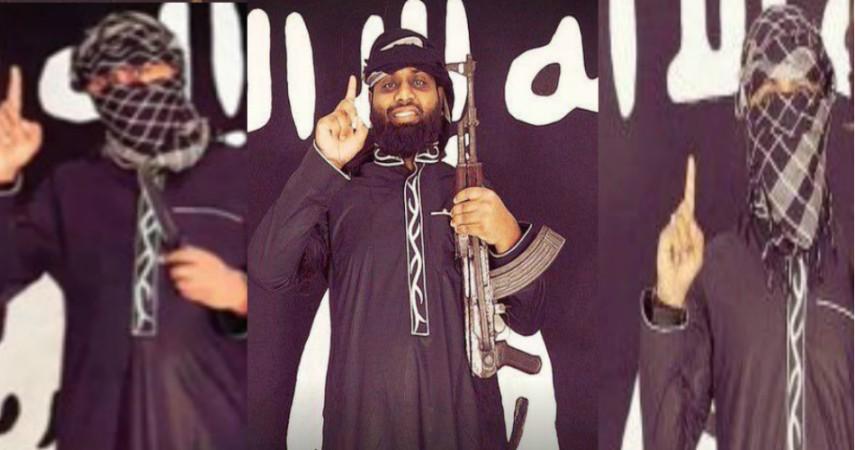
Two days after a series of bomb blasts rocked Sri Lanka on Easter Sunday, images of three men with an Islamic State flag in the backdrop were released alleging that the three were part of the bombers who blew up churches and high-end hotels in the Island nation.
One of the reasons many believe that the men, Abu Ubaida, Abul Barra, Abul Mukhtar were part of the mission is because the images were released by pro-IS television news channels. Another reason is that one of the men, identified as Abu Ubaida is also known as Zahran Hashin is said to be an operative for the National Tawheed Jamaat (NTJ), a jihadi group in Sri Lanka, reports Times of India.
In the images, the three men are seen with weapons and a one-finger salute which is exclusive for the Islamic State members. Abu Ubaida is the one with his face uncovered while the others have covered their faces with black and white scarves.
Since, Amaq, the media agency for the Islamic State, has not claimed responsibility for the attacks, nor has it released or confirmed the alleged terrorists, many are still apprehensive of confirming if the three men in the photos were indeed the suicide bombers.
Even with the many doubts, intelligence agencies still believe that the three men were part of the mission.
"The given names are typical of how IS identifies its Inghemasis (fighters) after they pledge allegiance to Abu Bakr al Baghdadi. But Ubaida figuring in these pictures, which have the same background, does indicate that NTJ had direct affiliation with IS. The trio is also seen giving the one finger salute, a sign popular with IS operatives," an intelligence officer was quoted as saying by TOI.
While Abu Ubaida was identified as an operative for the NTJ, officials feel that a much bigger operation was behind the attacks. One of the officials said that previously, the NTJ, which is a national Islamic group, could not deface a Buddhist statue completely and so they would not been able to carry this mission on their own.
Speculations are rife that the attacks which targeted especially the churches in the country, could have been a retaliation for the attacks in the two mosques in New Zealand which killed 50 Muslim worshippers in March. The IS had vowed to avenge the deaths. In India, places of worship, especially churches were told to amp up their security. This was the case for all countries.









